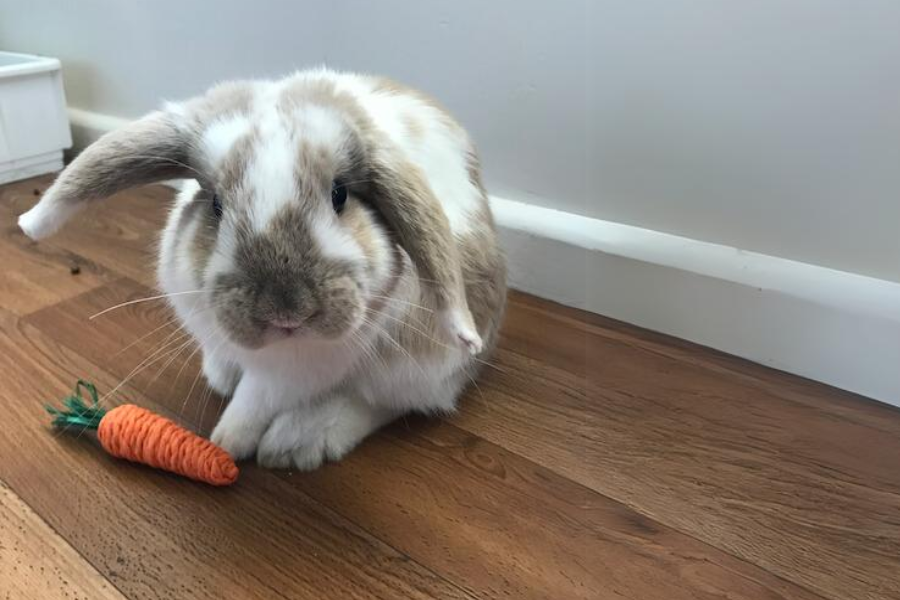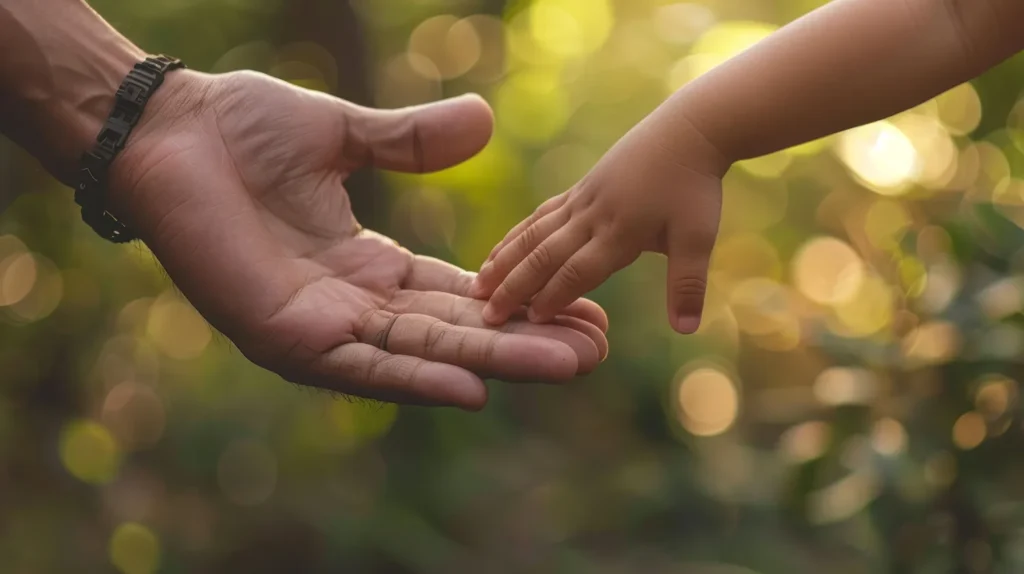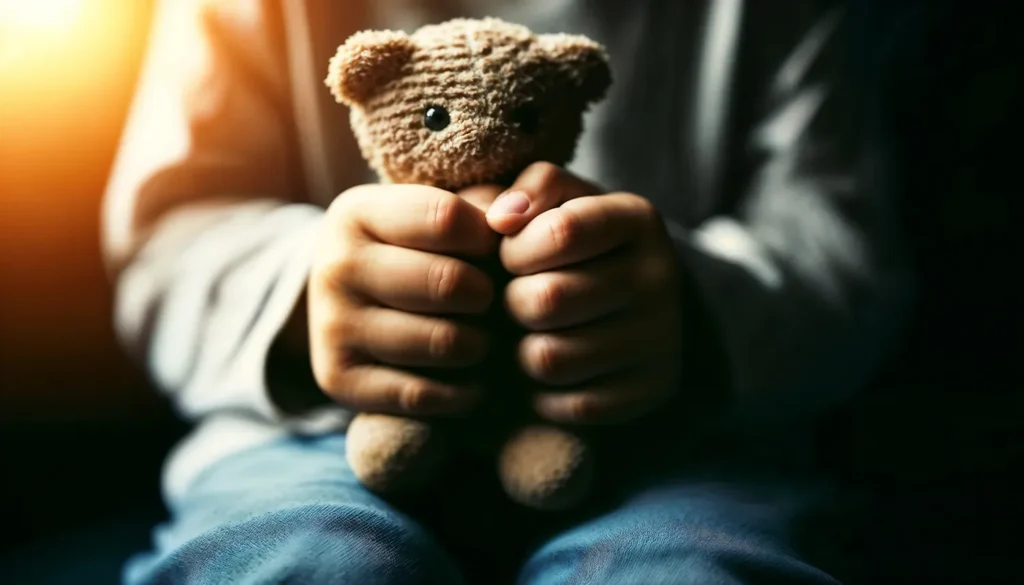This summer, I took a week’s leave to spend time with our eldest son, aged eight, during his school holidays. We had made plans of trips to the pool, treats at the café, lunch at sushi train, and other favourite activities. It was going to be a week of sunshine, bonding, and joy.
And then, our family pet, a house rabbit,* Whisky, got sick.
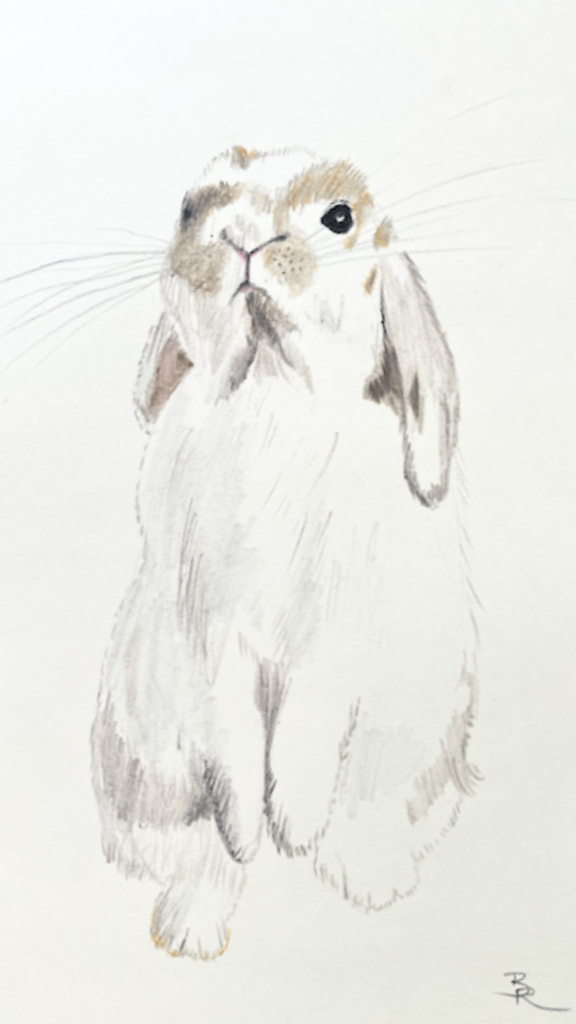
A quick phone call to the vet and an after-hours appointment determined that if the medicine didn’t work within a few days, we would be saying goodbye to a beloved bunny.
I was terrified.
Our son, at five years of age, had cried all the way to the rubbish dump when we farewelled a broken coffee machine. He sobbed and demanded that the new machine be ‘exactly the same’ as the old one. The broken whipper snipper received a similar send-off.
He doesn’t even drink coffee. Or mow the lawns.
How was he going to handle the death of a furry friend who had been there for most of his childhood? And how were my husband and I going to help him through this?
Our week of planned joy turned to a time of worry, as we watched Whisky go downhill and then drastically lose weight. It was clear to my husband and I that this situation was not going to end well. We knew it was time.
To be honest, I anticipated a repeat of the coffee machine saga. I thought we were in for weeks of tears. However, much to our surprise, our son showed us that he was able to sit with his precious pet Whisky, be there with him as he died, and farewell him in beautiful and creative ways – sad, grieving, but not broken.
Here are some of the things we did, some of which were purposeful, while others more accidental that seem to have helped him absorb the loss and grieve well.
Our son was given some agency in deciding that the time was right to say goodbye
We explained the parameters after our visit with the vet – if Whisky didn’t get better, and seemed to get worse, then it would mean we would need to care for him by giving him a good death and cut short his painful life. While he didn’t have ultimate control over this decision, we did check in with our son regularly over that week, noting Whisky’s weight loss and finally, asking him if he agreed with us that it was time to say goodbye.
We talked about what it meant to truly care for our pets
We talked about creation and God’s commissioning of humans to steward his creation and what that might look like for us and for Whisky. Hard as it was to say goodbye, our son understood that it was unfair to keep our bunny alive and suffering purely because we would miss him and prefer to have him for a few more days. He could see that we needed to put the wellbeing of the bunny that God joyfully had created before our own feelings or convenience.
We talked about heaven
I knew this question was coming. Yet I still felt uneasy and theologically ill-equipped to respond when he asked ‘Mummy, will Whisky go to heaven?’ I tried to balance the silence of the Bible about what happens to animals when they die with what the Bible does say about animals. While not promising that we’d one day see Whisky again, I told our son that God had called his creation ‘good’. And that in this ‘good’, God appreciated what he had created: our bunny, and that He cared about what happened to him. Together we looked at Jesus’ words in the Sermon on the Mount, where he talks about the birds and how they are fed by a loving Father. Not that they have food, nor that food is available. But that God is active in providing for his creation. And why would he do that if he did not care for it? Together, we reached an understanding that a God who loves his creation would not see Whisky as something to discard, and we can put our trust in a loving God.
We gave our son choices, so he was an active participant in preparing for Whisky to die
He was given the option of coming to the vet with us to say goodbye, or to stay home with Grandma if that felt overwhelming. He chose to come with us. When we went to the vet the next morning, we got out a cardboard box and he initiated what we did with the box. He grabbed a sharpie, decorated the lid, by drawing on it and wrote these words: ‘Whisky we’ll always remember you’. He then went outside and picked grasses, dandelion leaves, and flowers, raided the fridge for strawberries and a carrot, and lined the little coffin with Whisky’s favourite foods. He did what he could in those last hours to look after his bunny and to show his care. I would have put in a charging cable (a bunny gourmet delight), but they were in short supply.
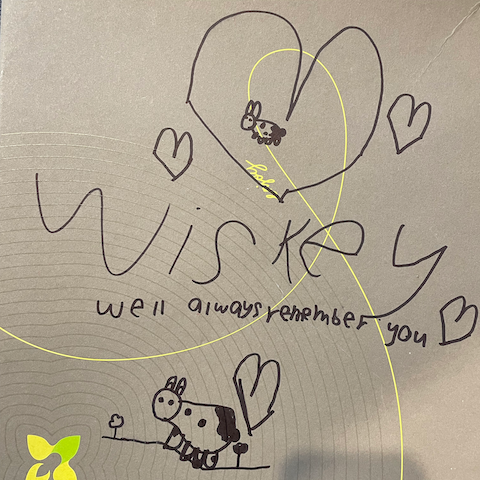
We spent time with our pet after he died
The little box sat on our hallway bench that day, waiting for my husband to get home that evening, to dig a hole in the garden under the apple tree. My husband and I had planted this tree for our son many years earlier, and it seemed like the perfect resting place for his precious pet Whisky. The vet told us what might happen to the body after Whisky died, but thankfully he was just still and peaceful. Our son opened the lid of the box occasionally throughout the day to give Whisky a little pat, cry a tear and tell his friend he was sad and sorry that he was gone.
And that was it. The following days were filled with swimming at the pool, building the Lego sets that Grandma had given him, and all our regular comings and goings. We all felt sad, we all had periods where we noticed his absence. We miss him. And we will always remember him.
But in it all, I feel that through the grace of a kind and loving heavenly Father, this earthly mother and father managed to navigate a parenting challenge in a way that supported our son, and allowed him to farewell his beloved pet and grieve well.
I hope our experience may shed some light on how to do this for your family and your children as they experience loss.
* A house rabbit lives indoors with your family. Litter-trained, they hop around the home, snuggle with you on the sofa, demand pats by tapping you if you lie on the floor, and generally behave adorably, when not chewing your iPhone cables. We highly recommend having a house rabbit as a pet. One day, when we are ready, we’ll most likely look for another little bunny to hop around our house and fill our hearts with joy.
Bonnie Rozorio lives in the NSW Central West, where you’ll find her attempting to keep on top of the weeds growing in the garden, baking and creating, and otherwise enjoying country life and the close-knit community it offers.
